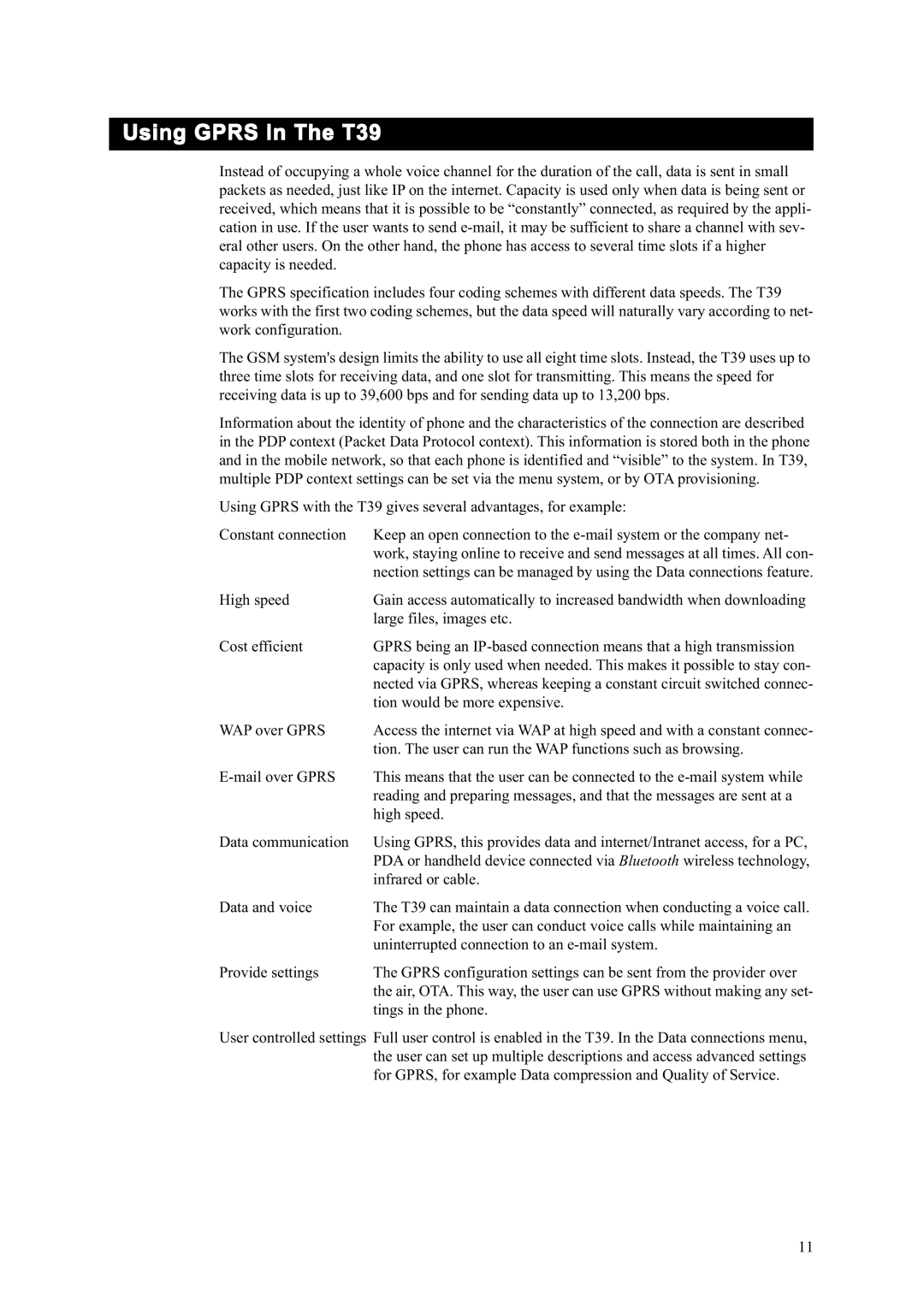Using GPRS In The T39
Instead of occupying a whole voice channel for the duration of the call, data is sent in small packets as needed, just like IP on the internet. Capacity is used only when data is being sent or received, which means that it is possible to be “constantly” connected, as required by the appli- cation in use. If the user wants to send
The GPRS specification includes four coding schemes with different data speeds. The T39 works with the first two coding schemes, but the data speed will naturally vary according to net- work configuration.
The GSM system's design limits the ability to use all eight time slots. Instead, the T39 uses up to three time slots for receiving data, and one slot for transmitting. This means the speed for receiving data is up to 39,600 bps and for sending data up to 13,200 bps.
Information about the identity of phone and the characteristics of the connection are described in the PDP context (Packet Data Protocol context). This information is stored both in the phone and in the mobile network, so that each phone is identified and “visible” to the system. In T39, multiple PDP context settings can be set via the menu system, or by OTA provisioning.
Using GPRS with the T39 gives several advantages, for example:
Constant connection | Keep an open connection to the |
| work, staying online to receive and send messages at all times. All con- |
| nection settings can be managed by using the Data connections feature. |
High speed | Gain access automatically to increased bandwidth when downloading |
| large files, images etc. |
Cost efficient | GPRS being an |
| capacity is only used when needed. This makes it possible to stay con- |
| nected via GPRS, whereas keeping a constant circuit switched connec- |
| tion would be more expensive. |
WAP over GPRS | Access the internet via WAP at high speed and with a constant connec- |
| tion. The user can run the WAP functions such as browsing. |
This means that the user can be connected to the | |
| reading and preparing messages, and that the messages are sent at a |
| high speed. |
Data communication | Using GPRS, this provides data and internet/Intranet access, for a PC, |
| PDA or handheld device connected via Bluetooth wireless technology, |
| infrared or cable. |
Data and voice | The T39 can maintain a data connection when conducting a voice call. |
| For example, the user can conduct voice calls while maintaining an |
| uninterrupted connection to an |
Provide settings | The GPRS configuration settings can be sent from the provider over |
| the air, OTA. This way, the user can use GPRS without making any set- |
| tings in the phone. |
User controlled settings Full user control is enabled in the T39. In the Data connections menu, the user can set up multiple descriptions and access advanced settings for GPRS, for example Data compression and Quality of Service.
11
